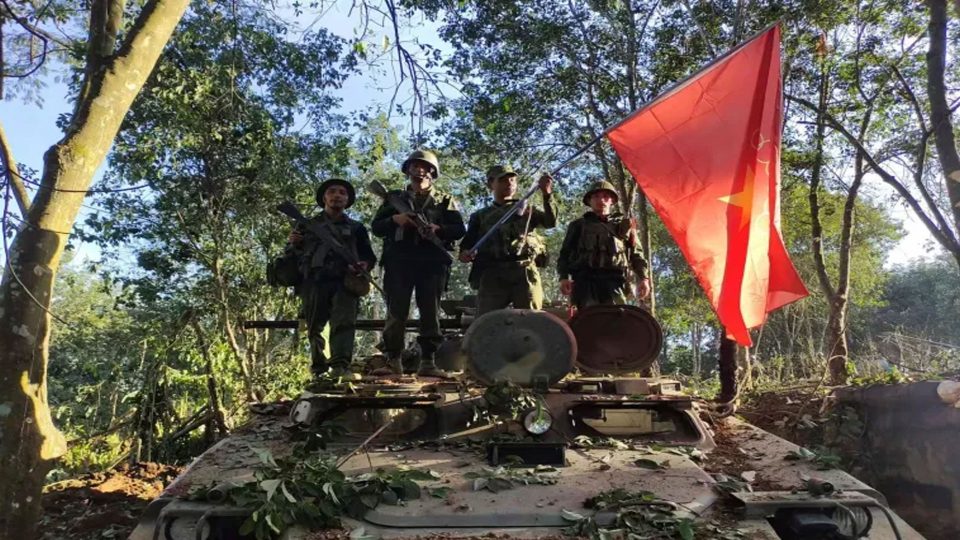In Myanmar, anti-junta resistance has escalated, with armed insurgent groups occupying over three hundred military outposts and seizing control of twenty cities. Despite the conflict, the Junta government has announced that general elections will be held across the country.
The armed resistance, known as the Three Brotherhood Alliance and supported by the National Unity Government (NUG), initiated Operation 1027 to counter the junta’s aggression. This offensive began in the northern Shan State on October 27.
The conflict has now spread to various parts of Myanmar. Even in this situation, junta leader Min Aung Hlaing has stated that general elections will be held soon. Voting will take place in every electoral area of the country. The ongoing conflict has intensified over the past seven weeks.
The Three Brotherhood Alliance, comprising the Arakan Army (AA), the Myanmar National Democratic Alliance Army (MNDAA), and the Ta’ang National Liberation Army (TNLA), has taken control of nearly 300 outposts in Shan State. Additionally, since December 8, at least eight cities in Shan State have been captured by this insurgent alliance. Plans are underway to capture another city in the region.
Meanwhile, in Rakhine and Chin States, the AA has occupied at least 45 military outposts and strategic checkpoints. The armed offensive that began in northern Shan State has extended to Sagaing, Mandalay, and Magway regions, as well as Chin State.
The conflict has also reached Rakhine and Chin States, where the AA has captured over 30 cities. Furthermore, the resistance forces, including the Chin National Army, the Arakan National Liberation Army (ANLA), and the Ta’ang National Liberation Army, have initiated Operation 1111 to counter the military rule in Kachin State. As of December 8, they have seized over 35 checkpoints in Loikaw, Demoso, and the adjacent areas of southern Shan State.
In Karenni State, another campaign, Operation 1111, was launched on November 11 by the Karenni Nationalities Defense Force (KNDF), Karenni Army, Karenni National People’s Liberation Front, and PDF. The KNDF reported that they have captured more than 35 checkpoints near Loikaw, Demoso, and the southern Shan State.
In response to the ongoing conflict, various humanitarian organizations and local communities have been providing essential supplies to affected areas. The United Nations Office for the Coordination of Humanitarian Affairs (OCHA) reports that food, shelter, sanitation, and healthcare are crucial needs in conflict-prone regions. Local and religious organizations are coordinating efforts to deliver emergency and life-saving supplies to affected and displaced individuals.
As of now, the conflict in Myanmar has led to the displacement of over 500,000 people, and the situation remains volatile. In the past six weeks, 363 civilians, including women and children, have lost their lives, and 461 have been injured in the ongoing clashes.

